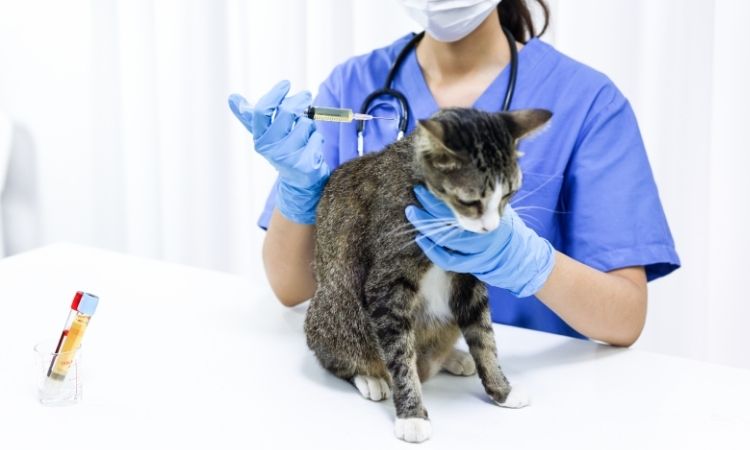The importance of animal health has never been more pronounced, with veterinary medicines playing a critical role in ensuring the well-being of pets, livestock, and even wildlife. These medicines encompass a wide spectrum of products, from vaccines and antibiotics to antiparasitics and nutritional supplements, aimed at preventing, treating, and managing various diseases. As pet ownership grows and livestock farming scales up to meet the global demand for animal products, the need for effective and safe veterinary treatments has accelerated significantly.
Expert Market Research Insight on Veterinary Medicines
Expert Market Research highlights that the veterinary medicines industry is experiencing robust expansion due to the combined influence of rising pet adoption, advancements in animal healthcare technologies, and growing awareness about preventive veterinary care. The market’s trajectory is supported by innovations in drug formulations, improved regulatory frameworks, and increased veterinary service accessibility. This growth is also reinforced by the surging demand for premium pet care and the pressing need to protect livestock health, ensuring food safety and agricultural productivity remain uncompromised.
Expanding Role of Veterinary Medicines in Modern Animal Care
Over the past decade, veterinary medicines have evolved far beyond traditional disease management, integrating advanced biotechnologies and diagnostics to offer tailored treatment solutions. The expansion of veterinary pharmaceuticals has been fueled by the recognition that animal health is intrinsically linked to human health through the One Health concept. Diseases like rabies, avian influenza, and brucellosis underscore the importance of proactive veterinary care in preventing zoonotic outbreaks that can have severe public health implications.
Pet owners are increasingly seeking preventive solutions to avoid costly treatments later, leading to greater uptake of vaccines, supplements, and wellness check-ups. Simultaneously, livestock producers are investing in veterinary medicines to maintain herd productivity, reduce mortality rates, and meet stringent quality standards for meat, dairy, and other animal-derived products.
Innovations Driving the Veterinary Medicines Industry
The industry has witnessed a wave of technological innovations, from long-acting injectable drugs and advanced antiparasitic agents to targeted antibiotic therapies. Biotechnology-based medicines, such as monoclonal antibodies and DNA vaccines, are opening new possibilities in animal healthcare. These advancements not only enhance treatment efficacy but also reduce side effects, improving overall animal welfare.
Digital tools and telemedicine are also playing a role, enabling veterinarians to monitor animal health remotely and prescribe medicines more effectively. The growing integration of wearable technology for pets and livestock further supports proactive healthcare by detecting early signs of illness.
Growing Pet Ownership and Companion Animal Care
Companion animals, including dogs, cats, and exotic pets, are increasingly regarded as family members, with owners prioritizing their well-being. This shift in perception has driven an increase in veterinary visits and the adoption of premium healthcare products. Urbanization and lifestyle changes have spurred pet ownership worldwide, creating a steady demand for advanced veterinary treatments that address everything from chronic conditions to routine care.
Veterinary medicines tailored for companion animals now include specialized pain management drugs, dermatological products, and nutritional supplements to support longevity and quality of life. Preventive care, particularly for age-related conditions like arthritis and dental diseases, is becoming a major area of focus for veterinary pharmaceutical companies.
Addressing Challenges in Livestock Health
In the livestock sector, veterinary medicines are indispensable in combating infectious diseases, controlling parasites, and ensuring animals remain productive and healthy. Rising concerns over antibiotic resistance have encouraged the development of alternative therapies, including probiotics, prebiotics, and vaccines that reduce reliance on traditional antimicrobials.
Furthermore, sustainable farming practices are influencing veterinary medicine use, with a stronger emphasis on preventive care rather than reactive treatments. This approach not only improves animal welfare but also aligns with consumer demand for ethically and sustainably produced animal products.
Future Outlook for Veterinary Medicines
The future of veterinary medicines lies in a balance between innovation, regulation, and accessibility. Biotechnology, precision medicine, and data-driven diagnostics are set to redefine treatment protocols, enabling more targeted and efficient solutions. Increasing awareness of zoonotic disease prevention and the need for food safety will continue to drive investment in veterinary healthcare systems.
As veterinary medicines become more specialized and integrated into broader animal health strategies, the industry is poised to play a central role in safeguarding both animal and human populations. Strategic collaborations between veterinary pharmaceutical companies, research institutions, and regulatory authorities will be essential to address emerging challenges and maintain sustainable growth.

